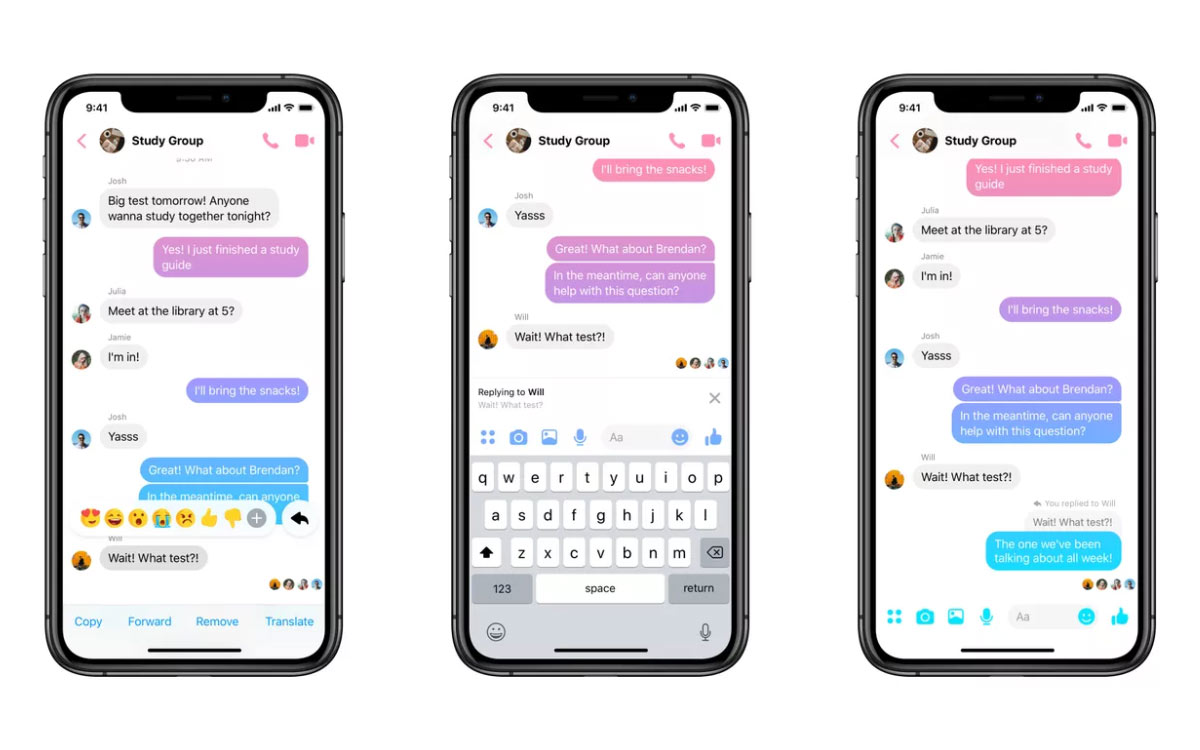
Facebook Messenger is one of the most widely-used messaging platform. Owned by the social media giant, if compared to WhatsApp, the app is indeed complex.
Following its promise in 2018 to remove some of the clutters, Facebook has updated Messenger to allow users to long-press on messages - text, photos, videos, GIFs or emojis - and have a reply option.
When doing this, users will see the full original message displayed in the text thread so that it’s clear to participants exactly which message is being responded to.
It's essentially a variation of Messenger @mentions, which Facebook introduced back in 2017, that acts as a way for users to add new people to a Messenger thread, and to also specifically address a person in-stream.
But this reply feature takes that a step further, with an easy way to quickly respond to users, and keep the broader thread on track.
It’s a pretty straightforward feature, and it's something that the Facebook-owned messaging app WhatsApp has already offered for a while.
So it makes sense that Facebook would bring it to its own Messenger app.
The quote and reply feature comes as an expansion of the company’s existing reaction emoji.
Previously, Facebook introduced a way for users to delete unwanted sent messages.
The 'Remove' feature was rolled out globally in February, giving users 10 minutes windows time to delete sent messages to individual people or groups.

Rolling out worldwide, this reply feature may just be a simple addition. But that is only for the time being.
Looking at Facebook at large, the social media giant is reportedly planning to unify its messaging apps behind the scenes.
Here, the company's ambition is to create a cross-platform system that would unite Messenger, WhatsApp, and Instagram messaging.
This would eventually make things easier for users to communicate, and also eases Facebook in introducing features to all of them at the same time. This in turn can help Facebook capitalize on its scale, and maximize in-app engagement.
When vice president of Messenger Stan Chudnovsky unveiled Messenger 4 in October 2018, he called it a new, simplified version of the social network’s flagship messaging app.
For reasons, one of which is to achieve "interoperability across its platforms" as one of its many goals.
This is why Facebook wants its messaging platforms to be easier to use and understand, inviting even more people into message streams. Decluttering Messenger, delete messages and the reply feature are a small part of this.
All with a broader goal of making things more inclusive and interactive, paving the steps to achieve that interoperability.
